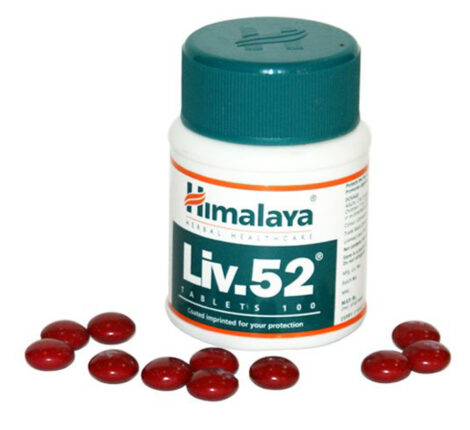How Can Trademarks Be Useful For MSME?
In developing economies like India, MSMEs play an immense role, standing at the backbone and constituting around 90 per cent of the economy. Innovation is the major component and the driving force of these enterprises, which ultimately lead to the growth of the enterprise and the national economy as a whole. They contribute significantly to employment creation, productive investments and value-added exports. Since innovation is one of these venture’s main and essential elements, Intellectual Property Rights automatically assume significance and contribute to the success of these.
Society in the present era is dominated by knowledge and information, where IPR play an immense role in the unprecedented success of the enterprise. The innovation that is the product of the labour used to employ intellect and knowledge need to be rewarded and protected, and IPR play a substantial role in furthering that. IPRs have a profound influence on social, economic and technological progress. The continuous innovation and creativity in the SMEs sector have given rise to new products, brands, and creative designs, which appear almost daily on the market.
IPRs play a crucial role in the progress of SMEs and the national economic structure, due to which is it necessary to give them due credit and protection. IPRs are those rights that stem from the intellectual product owing to industrial, scientific, literary and artistic efforts. These rights are granted protection for a specific time as these protected IP rights, like other property, can be a matter of trade, i.e., can be sold, owned or bought. These are intangible and non-exhaustive, and the commonly known IP rights are Patents, Trademarks, Copyrights, Designs, Trade Secrets and Geographical Indications.
The practical implementation of IP strategies can propel SMEs into monopolistic positions. It is one of the easy and legally accepted ways of creating a monopoly when done with balance and caution. For MSMEs, IP can be an asset. When secured by these enterprises, being negative rights can exclude others from using or profiting from their innovation, thus creating a market position.
Trademark is one of the IP rights that can be found in the business of every enterprise in today’s time. A trademark that is enforceable by law and can be given protection can go a long way for any business. Trademarks can be found everywhere in a company, starting from taglines and logos to sounds. Trademark law protects any mark that helps the consumer associate the goods and services covered under such mark. While it is not a legal compulsion to get the trademark registered, it is always a reasonable and prudent thing to enable enforcement and protection of the intellectual property rights arising out of the trademark. Regarding brands that have not registered their trademarks, it becomes difficult to enforce their rights in infringement cases.
When the trademark isn’t registered, the owner has to file a legal claim for ‘passing off’ in the Court and establish that,
- their brand enjoyed some goodwill in the market
- the alleged infringer has misrepresented the product as those of the brand owner
- the misrepresentation has caused damage to the owner
On the other hand, if a trademark is registered, the enforcement procedure in case of infringement is more straightforward. The owner, in this case, has only to prove that they own the trademark which is registered and that the alleged infringer has used a similar mark for marketing their products. There is no requirement to prove that their brand is distinctive and that there is reputation, nor are they required to verify that the alleged infringer harmed their brand. In the Trademarks Act, 1999, Section 29 defines infringement.
Another advantage of registration is that registered businesses can use the symbol “®” after their mark. This symbol provides formal notice to the public that the company has exclusive rights to use the mark, reducing the possibility of others using or musing the mark. Others who have not registered their trademarks can use the symbol “TM”.
The importance of trademarks has not been left ignored even by the Government of India. The Indian government has recognised the importance of the same and taken steps to further it with initiative such as ‘Make in India’. With such initiatives favouring the MSMEs can use their Intellectual Property, such as trademarks, to leave their imprint or mark in the market.
When it comes to any enterprise or venture, their brand becomes a leading factor in their success amongst the consumer base. The brand determines the business’s personality around their goods and services and further defines the relationship that these businesses share with their customers. Trademark is a fraction of the brand identity, and even though a fraction, it has a considerable influence over this identity.
A registered trademark is a brand name that ensures that no other business in the market can leech off the brand’s identity. Trademarks are one of the most powerful tools for defending the brand from loss of reputation, goodwill, and trust. A trademarked brand has ample room to grow in value and leverage this intangible asset to grow by obtaining financing and investment.
An enforceable trademark covers the consumer experience associated with the brand as well. While it is impossible to put a value on the customer’s emotions, it is possible to protect that emotion associated with that brand. By bringing into action the legal rights associated with a registered trademark, the businesses can protect their customers from falling into the trap of fake duplicates and counterfeits of their products and services. It takes a lot of hard work for the company to create a personality out of their brand and obtain goodwill from the consumers, and while trademarks may seem to benefit the business, it is a two-way street as it helps the customers as much as it does the brand.
Trademarks provide a brand with a lot of benefits, but at the same time, the cost-effectiveness of registered trademarks cannot be ignored. As stated above, it is not vital to get a trademark registered; however, this can turn out to be a considerable burden on time and energy in a later stage when trying to protect the brand. The action of ‘passing off’ demands many points to be proved before it can benefit the brand owner whereas, in cases of a registered trademark, registration and the fact that the defendant copied the same is required. Trademark registration is not only cost-effective but also an investment for businesses. A tedious, expensive and time-consuming process of passing off can be cut short by getting a trademark registered.
Trademarks are also an asset for the brand and can be leveraged by the MSMEs to gain further profits via licensing, selling, or assigning the same. Businesses can even capitalise on this intangible right and garner additional profits via licensing and franchising.
Intellectual Property Rights, especially Trademarks, can help in creating a formidable brand and market presence for the business. By investing in the creation, registration and acquisition of Intellectual Property, MSMEs can propel themselves into a lucrative position in the market. As MSMEs expand and continue to grow, and with increasing foreign competition in the market, it is crucial for them to leverage off of every asset, tangible or intangible, and trademarks can play an immense role, as seen above.




